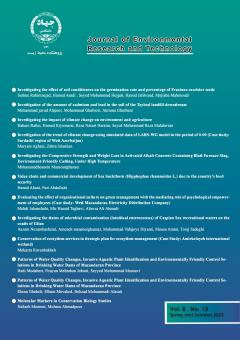-
-
-
Open Access Article
1 - Waste Management of Petrochemical Industries and Its Management
زهرا ضمیرایی علی ناهدNatural gas and crude distillates such as naphtha from petroleum refining are used as feedstocks to manufacture a wide range of petrochemicals that are in turn used in the manufacture of consumer goods. Petrochemical plants are typically l MoreNatural gas and crude distillates such as naphtha from petroleum refining are used as feedstocks to manufacture a wide range of petrochemicals that are in turn used in the manufacture of consumer goods. Petrochemical plants are typically large and complex, and the combination and sequence of products manufactured are often unique to the plant. Petrochemical plants generate significant amounts of solid wastes and sludges, some of which are hazardous because of the presence of toxic organics and heavy metals. A good practice target for a petrochemical complex is to reduce total organic emissions (including VOCs) from the process units to 0.6% of the throughput. In this paper a variety of control of air emissions techniques is has been studied. Petrochemical waste waters often require a combination of treatment methods to remove oil and other contaminants before discharge. For solid and hazardous wastes, combustion (preceded in some cases by solvent extraction) of toxic organics is considered an effective treatment technology for petrochemical organic wastes. Steam stripping and oxidation are also used for treating organic waste streams. The generation of sludges should be minimized. Wastes containing toxic metals should be stabilized before disposal. Manuscript profile
List of Articles Petrochemical Industries waste management organic wastes heavy metals
-
The rights to this website are owned by the Raimag Press Management System.
Copyright © 2017-2024


